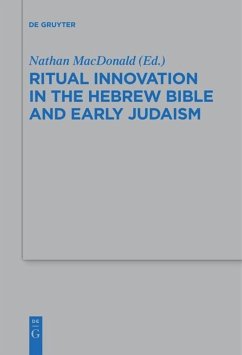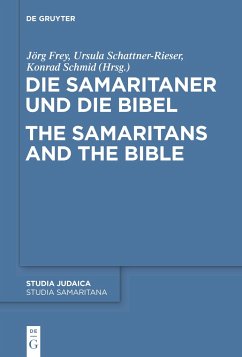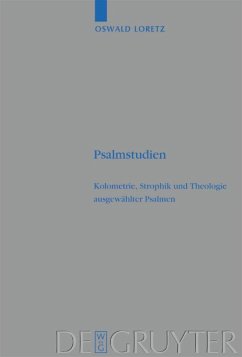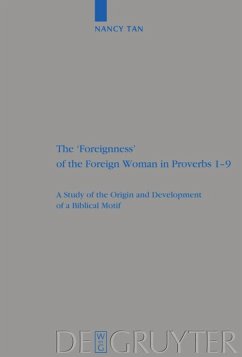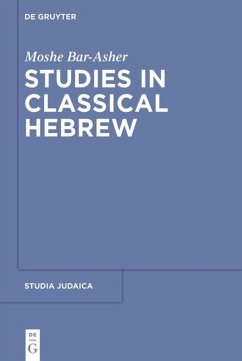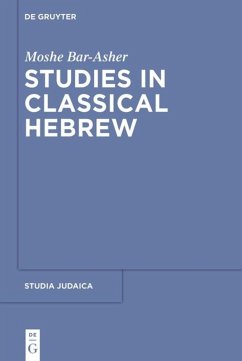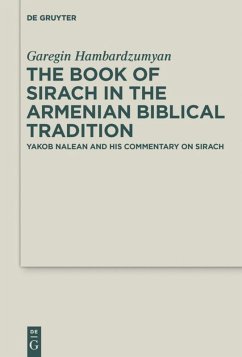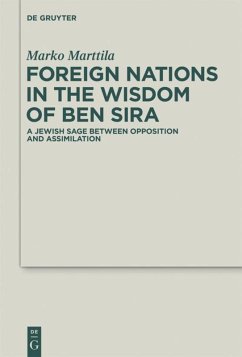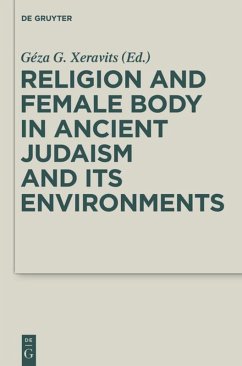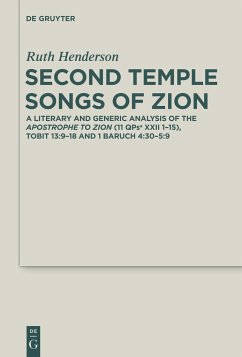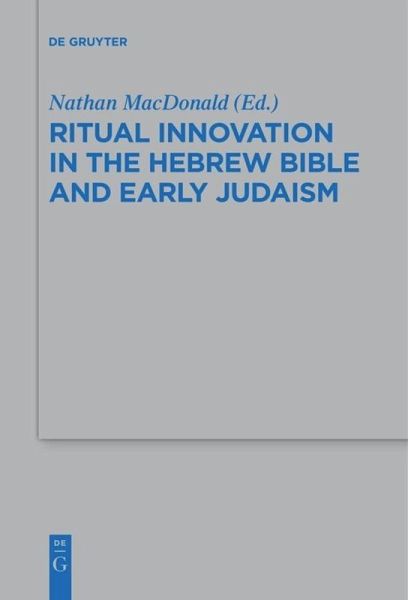
Ritual Innovation in the Hebrew Bible and Early Judaism
Versandkostenfrei!
Versandfertig in 6-10 Tagen
102,99 €
inkl. MwSt.

PAYBACK Punkte
51 °P sammeln!
Are the rituals in the Hebrew Bible of great antiquity, practiced unchanged from earliest times, or are they the products of later innovators? The canonical text is clear: ritual innovation is repudiated as when Jeroboam I of Israel inaugurate a novel cult at Bethel and Dan. Most rituals are traced back to Moses. From Julius Wellhausen to Jacob Milgrom, this issue has divided critical scholarship. With the rich documentation from the late Second Temple period, such as the Dead Sea Scrolls, it is apparent that rituals were changed. Were such rituals practiced, or were they forms of textual imag...
Are the rituals in the Hebrew Bible of great antiquity, practiced unchanged from earliest times, or are they the products of later innovators? The canonical text is clear: ritual innovation is repudiated as when Jeroboam I of Israel inaugurate a novel cult at Bethel and Dan. Most rituals are traced back to Moses. From Julius Wellhausen to Jacob Milgrom, this issue has divided critical scholarship. With the rich documentation from the late Second Temple period, such as the Dead Sea Scrolls, it is apparent that rituals were changed. Were such rituals practiced, or were they forms of textual imagination? How do rituals change and how are such changes authorized? Do textual innovation and ritual innovation relate? What light might ritual changes between the Hebrew Bible and late Second Temple texts shed on the history of ritual in the Hebrew Bible?
The essays in this volume engage the various issues that arise when rituals are considered as practices that may be invented and subject to change. A number of essays examine how biblical texts show evidence of changing ritual practices, some use textual change to discuss related changes in ritual practice, while others discuss evidence for ritual change from material culture.
The essays in this volume engage the various issues that arise when rituals are considered as practices that may be invented and subject to change. A number of essays examine how biblical texts show evidence of changing ritual practices, some use textual change to discuss related changes in ritual practice, while others discuss evidence for ritual change from material culture.



